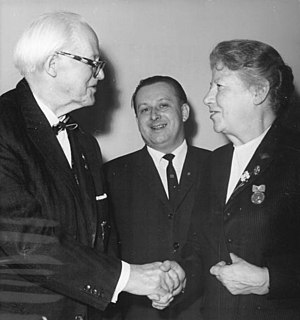 W
WLilly Becher was a German writer, journalist, and communist activist.
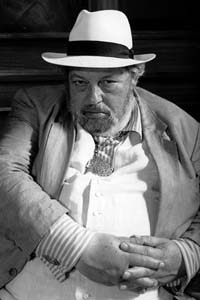 W
WPeter Berling was a German actor, film producer and writer. He has worked on several occasions with director Werner Herzog, among them his collaborations with actor Klaus Kinski like Aguirre, the Wrath of God, Fitzcarraldo and Cobra Verde.
 W
WCharlotte, Lady Blennerhassett was a German writer and biographer.
 W
WAlfred Einstein was a German-American musicologist and music editor. He was born in Munich and fled Nazi Germany after Hitler's Machtergreifung, arriving in the United States by 1939. He is best known for being the editor of the first major revision of the Köchel catalogue, which was published in the year 1936. The Köchel catalogue is the extensive catalogue of the works of Wolfgang Amadeus Mozart.
 W
WJohann Nikolaus Forkel was a German musician, musicologist and music theorist.
 W
WMario Frank qualified in Germany as a lawyer. He holds a West German doctorate, obtained for a piece of work on the East German Ministry of Justice. He has pursued a managerial career in the media sector. For a year during 2007/2008 he was chief executive of the Spiegel publishing group. In recent decades he has emerged as an important political biographer.
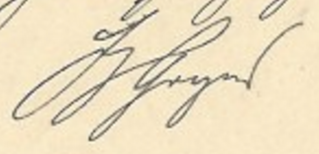 W
WLudwig Geiger was a German author and historian.
 W
WKarl Friedrich Ludwig Goedeke was a German historian of literature, an author, and a professor.
 W
WWolfgang Hildesheimer was a German author who incorporated the Theatre of the Absurd. He originally trained as an artist, before turning to writing.
 W
WOliver Hilmes is a German author who has written several historical biographies. His study of Cosima Wagner, the daughter of the 19th century composer Franz Liszt and his biography of Alma Mahler a Viennese-born socialite, have been translated into English.
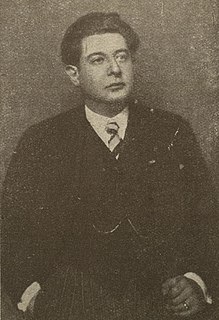 W
WHeinrich Eduard Jacob was a German and American journalist and author. Born to a Jewish family in Berlin and raised partly in Vienna, Jacob worked for two decades as a journalist and biographer before the rise to power of the Nazi Party. Interned in the late 1930s in the concentration camps at Dachau and then Buchenwald, he was released through the efforts of his future wife Dora, and emigrated to the United States. There he continued to publish books and contribute to newspapers before returning to Europe after the Second World War. Ill health, aggravated by his experiences in the camps, dogged him in later life, but he continued to publish through to the end of the 1950s. He wrote also under the pen names Henry E. Jacob and Eric Jens Petersen.
 W
WOtto Jahn, was a German archaeologist, philologist, and writer on art and music.
 W
WSiegfried Alfred Rudolf Friedrich von Kardorff was a German politician.
 W
WRudolf Kayser was a German literary historian.
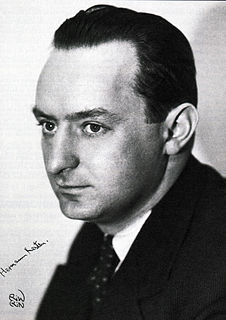 W
WHermann Kesten was a German novelist and dramatist. He was one of the principal literary figures of the New Objectivity movement in 1920s Germany.
 W
WFriedrich Max Kircheisen was a German historian, born at Chemnitz.
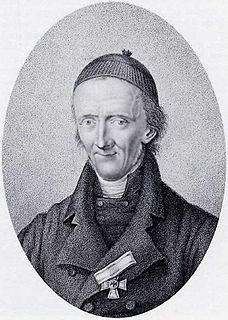 W
WGeorg Christian Knapp was a German Protestant theologian.
 W
WAnnette Kolb was the working name of German author and pacifist Anna Mathilde Kolb. She became active in pacifist causes during World War I and this caused her political difficulties from then on. She left Germany in the 1920s and her works were banned during the Third Reich. She wrote novels on high society and in later life wrote nonfiction about musicians. In 1955 she won the Goethe Prize.
 W
WChristian Gottfried Körner was a German jurist. His home was a literary and musical salon, and he was a friend of Friedrich Schiller.
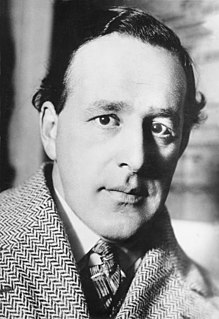 W
WEmil Ludwig was a German-Swiss author, known for his biographies and study of historical "greats."
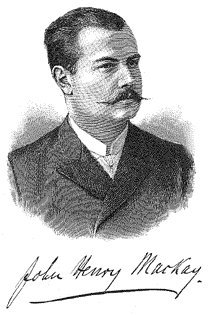 W
WJohn Henry Mackay was an egoist anarchist, thinker and writer. Born in Scotland and raised in Germany, Mackay was the author of Die Anarchisten and Der Freiheitsucher. Mackay was published in the United States in his friend Benjamin Tucker's magazine, Liberty.
 W
WLuiz (Ludwig) Heinrich Mann was a German novelist who wrote works with social themes. From 1930 until 1933 he was president of the fine poetry division of the Prussian Academy of Arts. His numerous criticisms of the growth of National Socialism forced him to flee Germany after the National Socialist German Workers Party came to power during 1933.
 W
WGustav Mayer was a German journalist and historian with a particular focus on the Labour movement. He fled Nazi Germany in 1933 and lived the final years of his life in England.
 W
WRudolf Olden was a German lawyer and journalist. In the Weimar period he was a well-known voice in the political debate, a vocal opponent of the Nazis, a fierce advocate of human rights and one of the first to alert the world to the treatment of Jews by the Nazis in 1934. He is the author of Hitler der Eroberer. Entlarvung einer Legende which is considered part of the German exile literature. The book was promptly banned by the Nazis. Shortly after its publication by Querido in Amsterdam, Olden's citizenship was revoked and he emigrated, together with his wife, first to the United Kingdom and then, in 1940, to the United States. On September 18 both died in the U-boat attack on the SS City of Benares in the Atlantic.He was a German Liberal of the best sort, rather more pugnacious than the average British Liberal, because he had more to fight against.
 W
WFriedrich von Oppeln-Bronikowski was a German writer, translator, publisher and cultural historian. His grave is located in the Südwestkirchhof Stahnsdorf near Berlin.
 W
WWilhelm Pauck was born in Laasphe, in Westphalia, Germany [today, Bad Laasphe], January 31, 1901, and died in Palo Alto, California, September 3, 1981. A German-American church historian and historical theologian in the field of Reformation studies, Pauck's fifty-year teaching career reached from the University of Chicago and Union Theological Seminary, to Vanderbilt and Stanford universities. His impact was extended through frequent lectures and visiting appointments in the U.S. and Europe. Pauck served as a bridge between the historical-critical study of Protestant theology at the University of Berlin and U.S. universities, seminaries, and divinity schools. Combining high critical acumen with a keen sense of the drama of human history, in his prime Pauck was considered the Dean of historical theology in the United States. In the course of his career he became associated with Reinhold Niebuhr and Paul Tillich as friend, colleague, and confidant.
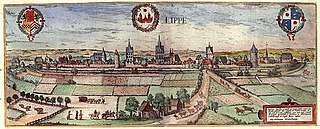 W
WAnton Praetorius was a German Calvinist pastor who spoke out against the persecution of witches and against torture.
 W
WLeopold Friedrich Prowe was a German historian and gymnasium instructor, born as the son of a town councillor of Thorn in West Prussia, the town where in 1473 the astronomer Nicolaus Copernicus was born. Prowe compiled a comprehensive German language biography of Copernicus, titled Nicolaus Coppernicus.
 W
WFritz Joachim Raddatz was a German feuilletonist, essayist, biographer, journalist and romancier.
 W
WLina Ramann was a German writer and teacher known for her books on the Hungarian composer and pianist Franz Liszt. Between 1874 and Liszt's death in 1886, she interviewed him and had access to all of his manuscripts and publications in his library. She wrote his authorized biography and the first in-depth critical analysis of his works, all of which were published in three volumes as Franz Liszt als Künstler und Mensch between 1880 and 1894.
 W
WWerner Karl Ferdinand Freiherr von Rheinbaben was a German diplomat and author.
 W
WErika Rosenberg is an author, interpreter and journalist. She wrote a biography of Emilie Schindler.
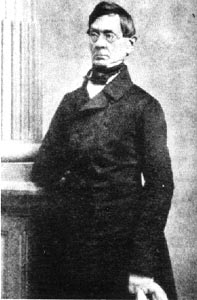 W
WAnton Felix Schindler was an associate, secretary, and early biographer of Ludwig van Beethoven. He was born in Meedel, Moravia, and died in Bockenheim.
 W
WAdolf Heinrich Friedrich Schlichtegroll was a teacher, scholar and the first biographer of Wolfgang Amadeus Mozart. His brief account of Mozart's life was published in a volume of twelve obituaries Schlichtegroll prepared and called Nekrolog auf das Jahr 1791. The book appeared in 1793, two years after Mozart's death.
 W
WEnno Stephan (1927–2018) was a German journalist and historian. He was conscripted into the German military at the age of 15 during the Second World War and subsequently became a prisoner of war. He was sent to work at the Abbey of Fontenay in France before starting a career in print and later radio journalism.
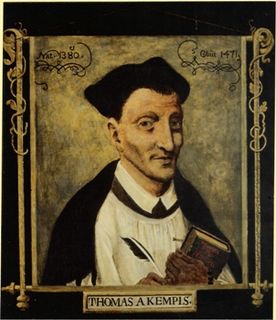 W
WThomas à Kempis was a German-Dutch canon regular of the late medieval period and the author of The Imitation of Christ, one of the most popular and best known Christian devotional books. His name means "Thomas of Kempen", Kempen being his home town.
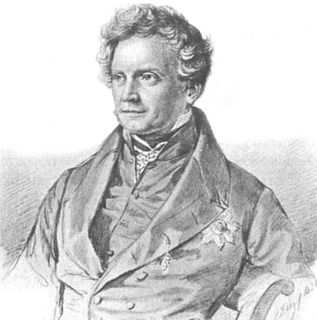 W
WKarl August Varnhagen von Ense was a German biographer, diplomat and soldier.
 W
WFranz Gerhard Wegeler was a German physician from Bonn, who was a childhood friend of Ludwig van Beethoven. He was the father of historian Julius Stephan Wegeler (1807-1883).
 W
WJoseph Wulf was a German-Polish Jewish historian. A survivor of the Auschwitz concentration camp, he was the author of several books about Nazi Germany and the Holocaust, including Das Dritte Reich und die Juden ; Heinrich Himmler (1960); and Martin Bormann: Hitlers Schatten (1962). The House of the Wannsee Conference museum in Berlin houses the Joseph Wulf Library in his honour.